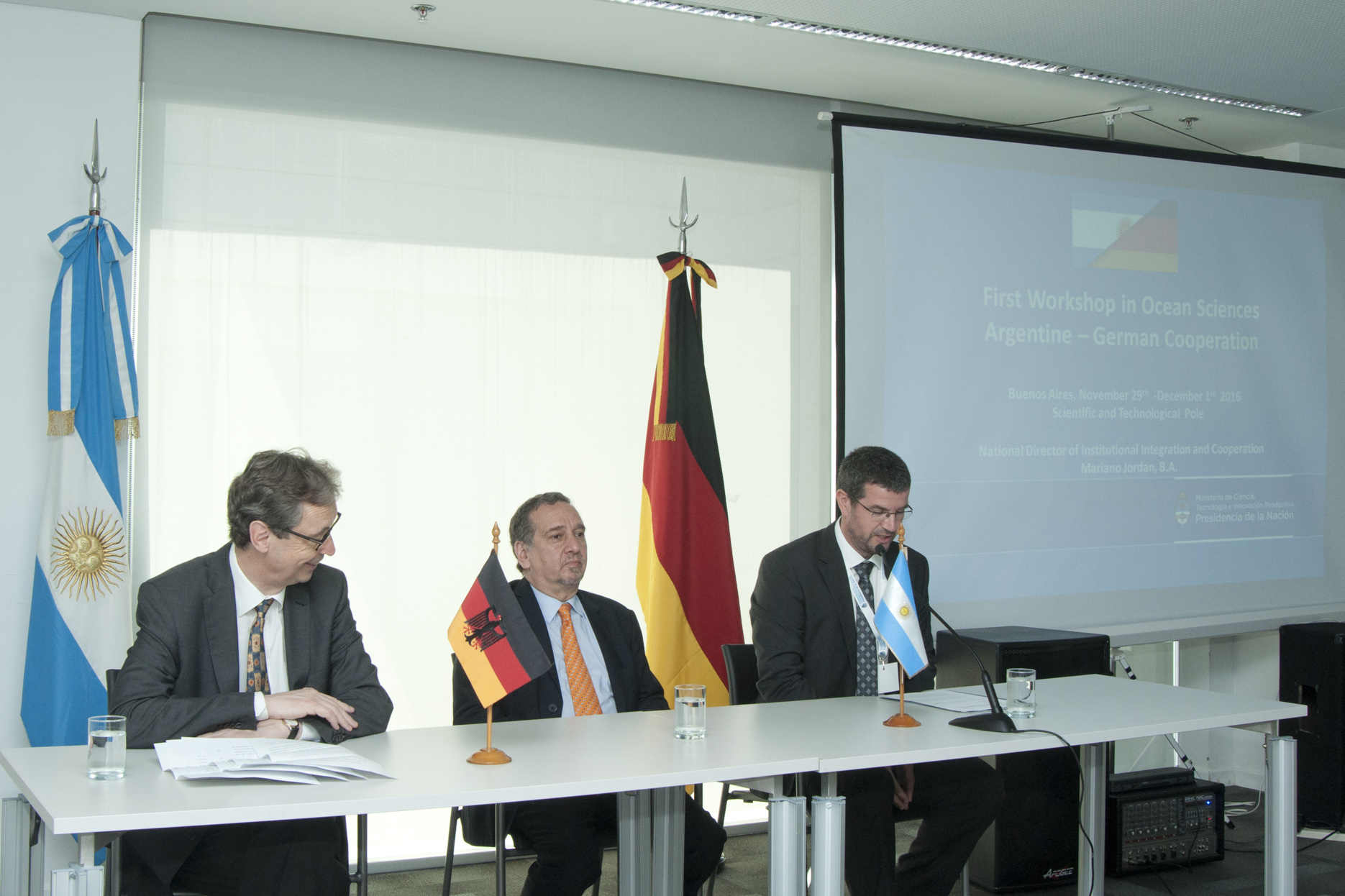German-Argentine Ocean Science Workshop in Buenos Aires
(12.12.16) From 29.11 to 1.12.2016 a German-Argentine workshop on ocean sciences took place in Buenos Aires, Argentina. Around 15 researchers from Germany and 45 from Argentina gathered at Polo Cientifico, home to the Argentine Ministry of Science, MINCYT, and the research funding organisation CONICET. The Deutsche Forschungsgemeinschaft (DFG, German Research Foundation) and the German Federal Ministry of Education and Research (BMBF) also participated in the event.
This workshop is the result of a DFG roundtable discussion that took place in April 2016 in Bremen, also on the topic of ways to collaborate with Argentine researchers in the area of marine research. The Argentine initiative Pampa Azul, in which seven Argentine ministries are involved, played a central role in the realisation of the workshop, since marine research has been a strategic issue for Argentina since 2014. During the workshop, various existing bilateral collaborations were presented, making it very clear that there is potential for further development and the creation of new scientific projects.

(L to R) Ambassador Bernhard Graf von Waldersee, Minister Lino Barañao and Norbert Overbeck (BMBF)
© MINCYT
The event was opened by a high-ranking line-up of speakers. In their opening remarks, the Argentine Minister of Science, Lino Barañao, the German Ambassador Bernhard Graf von Waldersee and the BMBF representative, Norbert Overbeck, underlined the importance of the scientific relationship between Argentina and Germany. To start with, representatives of the BMBF, CONICET, MINCYT and the DFG presented their funding opportunities for bilateral scientific collaboration.
The scientific part of the workshop was extremely comprehensive: over two days, around 40 specialist lectures were held, in which participants presented their current or planned research projects to those in the plenary session. This first round allowed researchers to identify links between the various projects. For further discussion the researchers were subsequently divided into four specialist working groups: “Ocean Dynamics and Sediments”, “Biodiversity”, “Source to Sink” and “Biogeochemistry”.
On the last day of the workshop, the four groups presented the results of their discussions. Joint goals such as research topics, routes of research vessels and how to resolve logistical issues were presented. The planning of project and consortium applications was also discussed, and at the end of the meeting those present had an opportunity to discuss research funding options with representatives of the funding organisations.